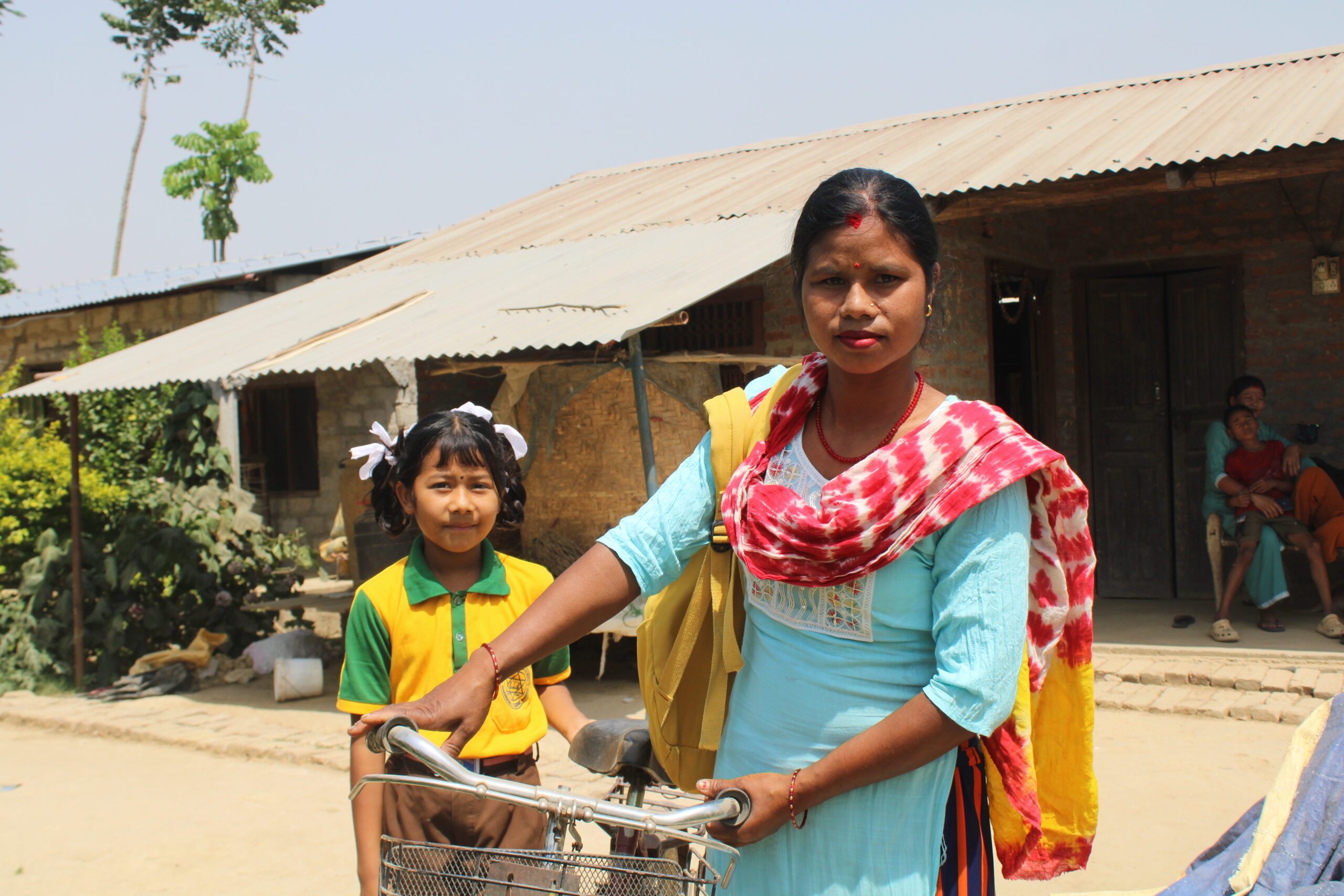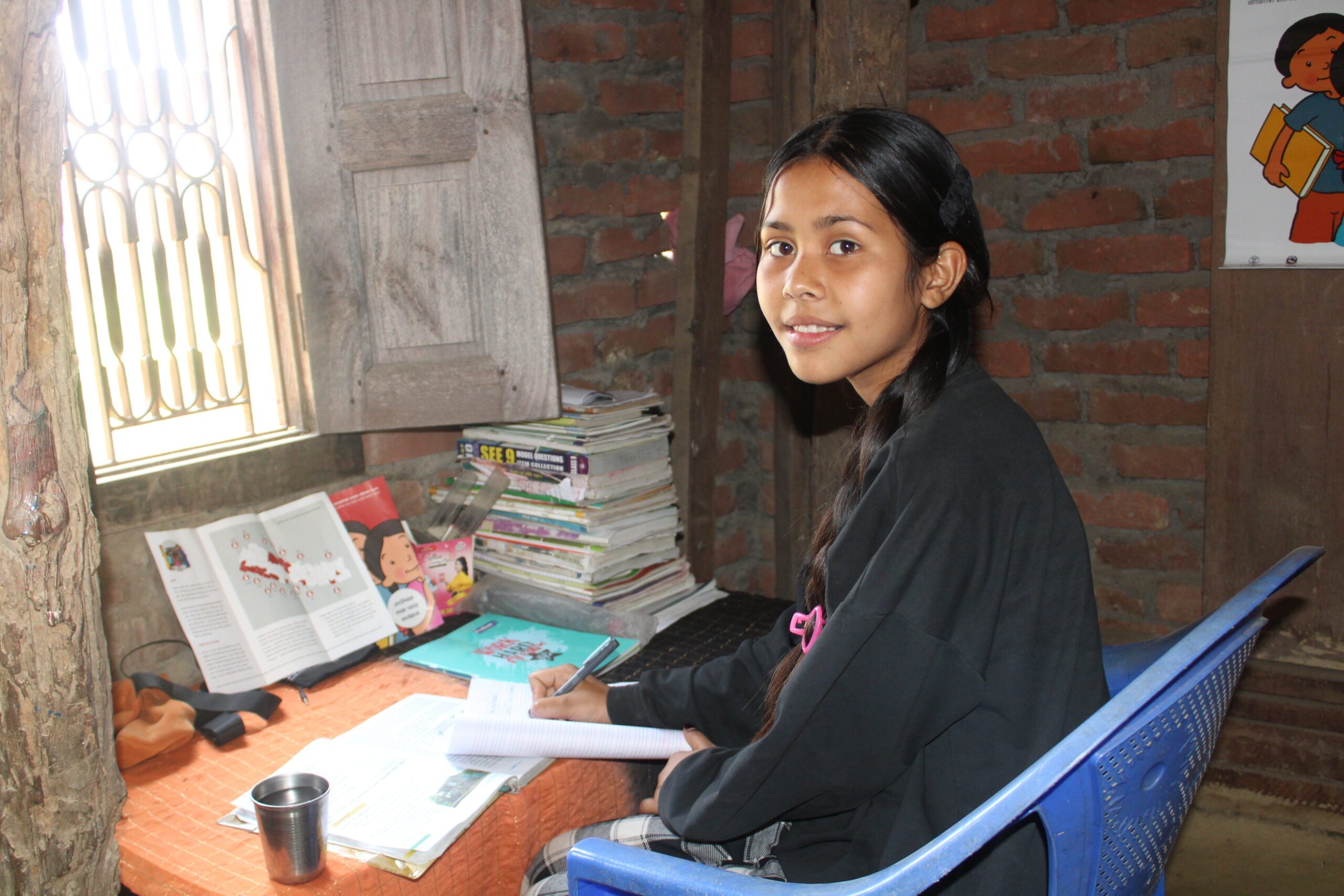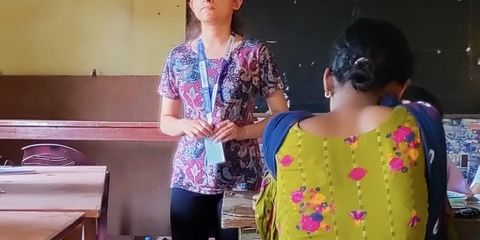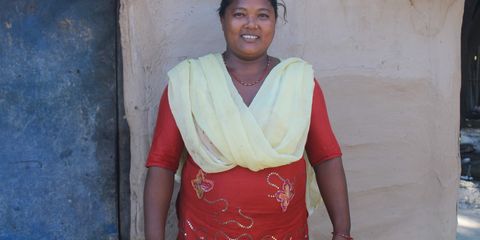Involving parents in their children’s education
Ram Kumari joined the Parent Teacher Association at her daughters’ school 5 years ago. Now the chairman, she actively involves parents in their children’s education, raising awareness of the importance of parental involvement in shaping quality education and advocating for girls’ education to prevent child marriage.

Ram Kumari first became involved in a parent interaction session at her daughter’s school. It was there she learned about the crucial role of the Parent Teacher Association (PTA) in preventing child marriage. Inspired by the discussion, she decided to join the PTA, where she has since become a strong advocate for girls’ education and a key figure in mobilising parents to fight against child marriage in her community.
Taking on leadership
“At first, I wasn’t sure about my role in the PTA. I just followed instructions without fully understanding what was happening,” she admits. Ram Kumari learned quickly, and 3 years later she was unanimously elected PTA chairperson, a testament to everyone’s confidence in her abilities. “I believe that active PTA involvement is the cornerstone of quality education, uniting parents, teachers, and the community for the success of our children.”
From a remote part of Bardiya district in western Nepal, Ram Kumari observed several challenges when it came to educating children in her village. Many parents did not value education and were disinterested in their children’s studies, while others thought their role ended once they had enrolled their children in school.
“I used to think that sending children to school was enough. But now I understand the role parents play in their children’s academic success,” says Ram Kumari, adding that parents need to be actively involved in their children’s educational journey to help them progress and develop.
“At first, I wasn’t sure about my role in the PTA. I just followed instructions without fully understanding what was happening.”
Ram Kumari
Parental involvement and its importance
There was also a lack of understanding among some parents about what constitutes a quality education for their children. Many parents focused solely on academic achievement, overlooking other important aspects such as life skills, critical thinking, and creativity. This narrow view of education limits students’ ability to thrive in a rapidly changing world.

Ram Kumari notes that parents often prioritised household responsibilities or work activities over active participation in their children’s education. This lack of involvement meant that parents missed opportunities to support and encourage their children’s learning and development.
“Encouraging parents to attend meetings and talk to their children about education isn’t just a challenge; it’s a crucial step in building a stronger, more supportive educational foundation for our children’s future,” says Ram Kumari.
Under Ram Kumari’s leadership, the PTA developed an annual plan to conduct awareness sessions for parents and community members. These sessions were designed to educate them about the importance of girls’ education and the harmful effects of child marriage. The plan included both face-to-face sessions and door-to-door campaigns to ensure maximum reach and impact.
“Empowering our community starts with education and awareness,” says Ram Kumari. “Together, we can break the cycle of child marriage and ensure a better future for our girls.”
Improving school infrastructures and facilities
Through these efforts, Ram Kumari effectively mobilised the PTA and worked with the School Management Committee (SMC) to advocate for girls’ education and combat the practice of child marriage in her community. Her strategic approach and commitment to raising awareness played a pivotal role in addressing this critical issue and promoting positive change in the village.
“Now I actively engage with teachers to address school issues and improve student learning. I also consult them about my daughter’s progress and look for ways to further support her education,” says Ram Kumari.
Training on sexual and reproductive health and rights for young people is also a priority and has facilitated the construction of a menstrual health centre and repaired and created gender-friendly toilets in the school.
“Now our school has access to clean drinking water and handwashing facilities. The provision of free sanitary pads during menstruation has made the girls happy and encouraged them to attend school regularly. In addition, an incinerator has been installed for the safe disposal of sanitary products.
To address other challenges, Ram Kumari actively engages with parents through various initiatives and discussions. She stresses the importance of parental involvement in shaping quality education for their children, emphasising the need for a well-rounded approach that includes not only academics, but also life skills, values, and personal growth.
Through her efforts and advocacy, Ram Kumari hopes to inspire parents in her village to take a more active role in their children’s education and create a supportive and nurturing environment that promotes learning and success. “Being informed and involved has made a positive difference in our school community,” concludes Ram Kumari with pride.
How Plan International Nepal is working with PTAs
Plan International Nepal is actively engaging PTAs in schools across Bardiya and Dhanusha to strengthen their capacities and enhance collaboration with SMCs. As part of the Child, Not Bride project, these efforts include capacity-building training for PTA members, covering topics such as positive parenting, interaction sessions with parents, teachers, and out-of-school children, and discussions on child protection policies and risks from disasters like floods and landslides.
Ram Kumari’s school is one of the beneficiaries of this project. Through the training sessions, she gained the skills needed to collaborate effectively with the SMC. Recognising the connection between child marriage and the high dropout rate among female students in her village, Ram Kumari has been a driving force in raising awareness and advocating for change, making a significant impact in her community.


